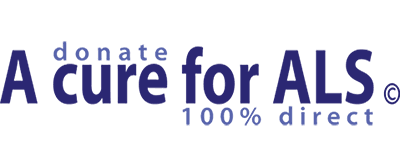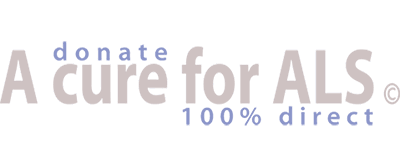Clinical trials: between facts and fiction
What is the use of clinical tests and what you need to know
Clinical trials are crucial to progress in the fight against ALS. But about these tests also a lot of (wild) stories go around. We try therefore indistinguishable facts and fiction.
Any medication available today, were first thoroughly tested. These clinical trials help scientists to:
- to acquire understanding in new treatment: give it better results than previous treatments?
- to determine whether a drug is safe or perhaps may have harmful side-effects.
- to determine the dose that should be prescribed.
But about these important tests also exist many misunderstandings. This makes that patients with ALS who’re considering participation sometimes have conflicting feelings. So it’s a profound and overwhelming experience. That's why we point out the importance with some persistent myths.
Volunteers
The story goes that most patients with ALS who sign up as volunteers simply refused to participate in clinical trials.
This isn’t quite right. True is that researchers predetermine certain criteria in which the participants should meet the test. Think of criteria such as age, sex, disease status or even race. This also means that patients with ALS which might not be suitable for a particular clinical test, can be candidate for another test.
Placebo effect
Another often-heard argument is that participants to clinical testing receive a placebo or sugar pill administered.
In certain cases participants in a clinical test indeed get a placebo. It may be a sugar pill or a pill with a different composition that does not harm or benefit to the volunteer. Sometimes the people who get the placebo are better off than the group that is given the test drug. This is possible the case if it turns out that the test drug has unpleasant side effects.
Who exactly gets the placebo or the test medication is based on coincidence. The pharmacist in the research team is the only person who knows what each participant gets exactly. Nothing to the packaging of the drug will reveal if it’s a placebo or whether there is an active test drug. The package of the placebo and of the test drug is in fact identical. Hence the scientific term "double blind": nor the patient nor the research team know which treatment the patient follows (placebo or active test drug). Double blind ensures that all people involved in the study - from patient to family, the people who administer the drug, even the study leaders - are completely unbiased if they observe side effects or potential improvements.
Despite the fact that participants in a test indeed can get a placebo, these people will always rely on the most effective treatment for their disease. They get this treatment just on top of the possible placebo, the new drug or tested therapy.
In the case of ALS is in example Rilutek (Riluzone), an approved drug that patients with ALS, who participate in a clinical trial may continue take.
High costs
Another complaint is that participating in a test would bring no benefit to the volunteer. Participation would also be very expensive because the costs not be covered by health insurance.
Both statements are incorrect. Participating in a clinical trial on the contrary, the only way to experience the benefits of an effective new treatment. Also, many pharmaceutical companies make the necessary efforts to ensure that participants don’t have to incur any costs for their participation in a clinical trial. These pharmaceutical companies are working for example with investigators, insurance companies and policy makers. Test participants need in certain cases to reimburse travel expenses.
To get complete certainty about any costs associated with participation, however, it may never hurts to contact in advance the insurance and / or clinical contact.
When patients with ALS fear that their rights are compromised, they can always contact the ALS League.
Trust
Also on the consent form dominates the necessary confusion. Some people claim that this particular form would protect the legal interests of the investigators and that it would make it impossible for the participant to stop the test. Participants would be considered so in fact as guinea pigs by science.
This doesn’t correspond with the reality. The consent forms are on the contrary designed to protect the rights of each participant. Researchers are required by law to clearly explain the purpose of the tests, as well as the potentially harmful side-effects and possible benefits. Participants in the study may at any time leave the clinical trial, although it’s advised to inform the scientific monitoring team about it first. Some medications can only be stopped under medical surveillance.
The relationship between the investigator and the patient should be based on (mutual) trust. Protecting the physical and emotional well-being of the patient is highly important. All clinical trials are therefore strictly regulated and closely monitored by a team of specialists. Keep in mind also that the researchers involved often carry a very large commitment to their work.
Numerous advantages
Participating in a clinical trial leads to a win-win situation for all parties. The participating patients gets the positive feeling that he contributes with his participation in the scientific fight against ALS.
Furthermore, the participation of patients is essential for developing a drug and / or treatment against ALS in the near future. Only with the help of patient themselves a treatment for this terrible disease can be developed!
Translation: Marina


